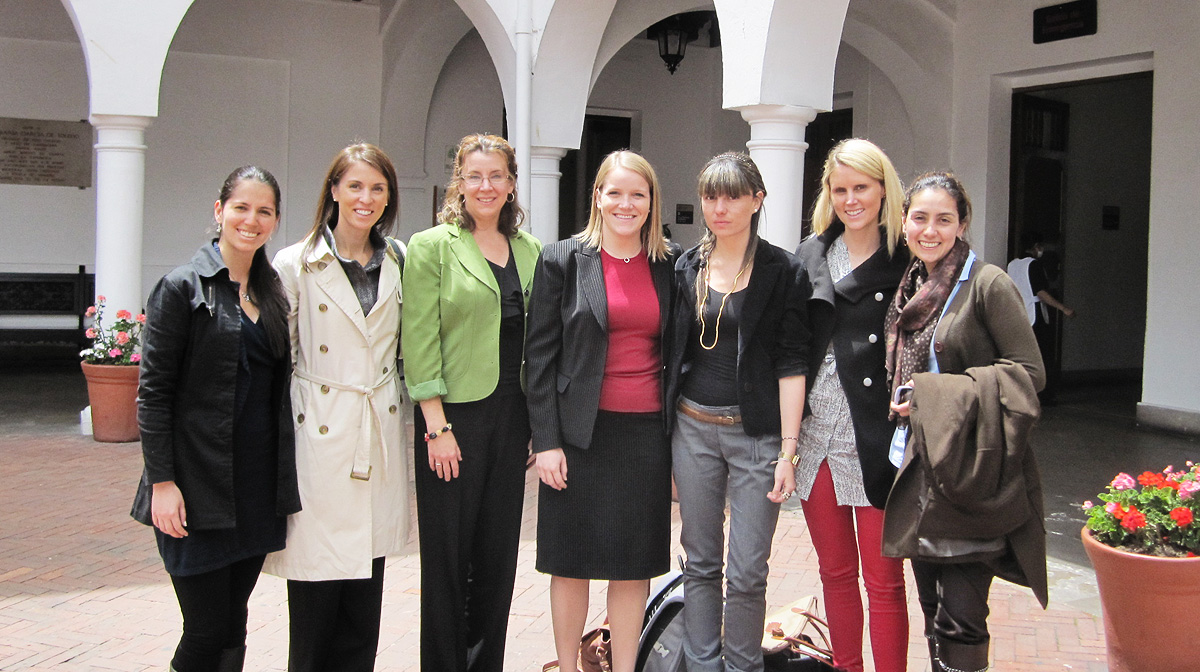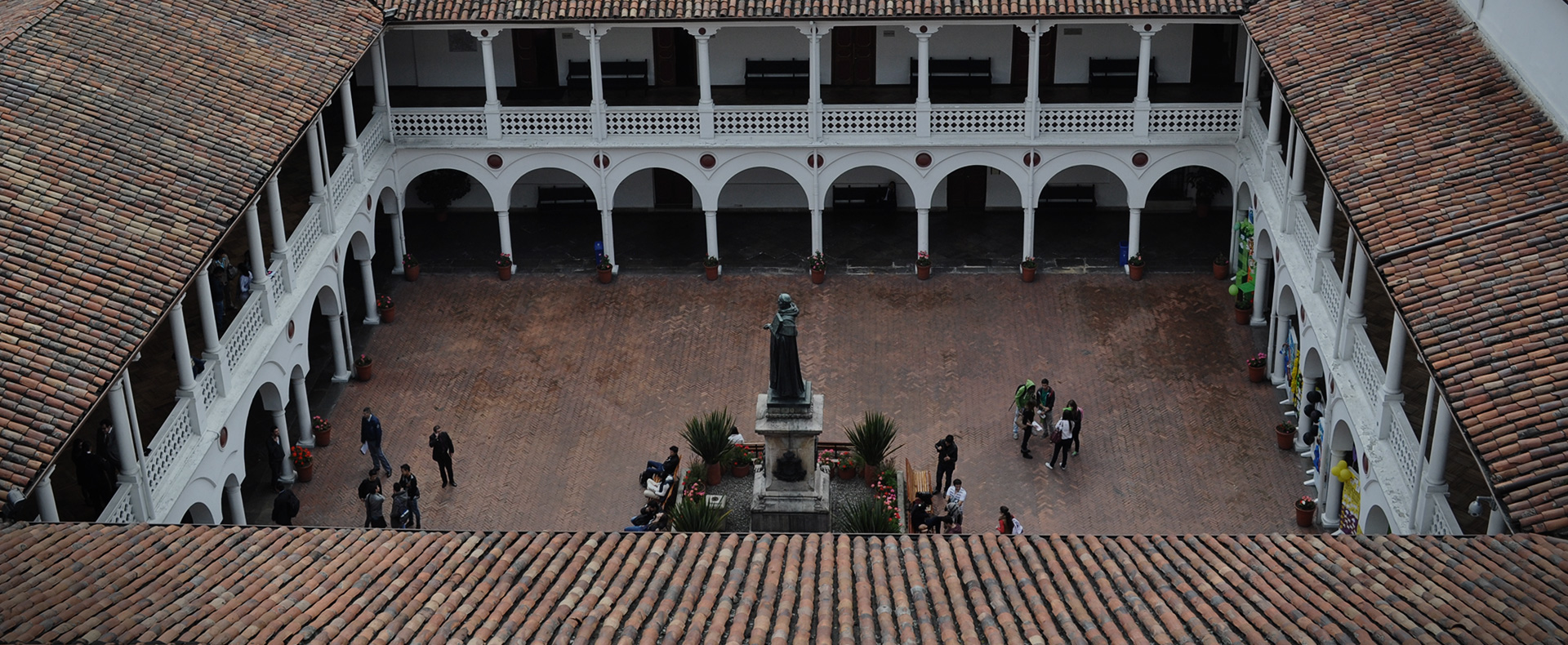Teaching and learning about pro bono in Bogota

Posted on 2 September 2013 by Katie Jahnke-Dale
After spending my first year with DLA Piper as one of the inaugural Krantz Fellows, working exclusively with the pro bono department, including the New Perimeter team, travelling to Bogota, Colombia to teach about pro bono seemed like a perfect fit. I had seen first-hand and on a daily basis the positive impact pro bono has on a lawyer’s career, on a law firm or company and on the legal profession as a whole.
From the first planning call with our project partner, Fundacion Pro Bono Colombia, we knew that something really cool was happening in Colombia. A small organization with only two full-time staff, the Fundacion is the only pro bono orgaqnization and clearinghouse in Colombia. They had done their research and learned about New Perimeter’s work teaching in Mexico and asked us to do something similar in Bogota. We happily accepted.
New Perimeter has taken two teaching trips to Bogota – November 2012 and May 2013 – and I have been fortunate to participate in both. During both trips, we taught at two universities and participated in numerous meetings with law firms. At the universities, our presentations vary but overall cover pro bono in general – what it is, how it can help address access to justice issues, why law firms and lawyers should get involved and, practically speaking, how a young lawyer can incorporate pro bono into his or her practice.
One of the most exciting things about my participation in this New Perimeter project has been witnessing the change in attitudes and programs between our first and second trip. During the first trip we had a number of introductory meetings during which we explained generally what pro bono is and why lawyers should do it. Six months later, we met with the same law firms who asked us very pointed questions about the development and expansion of their pro bono programs. Many of them had implemented pro bono policies and started pro bono programs and wanted to know how they could do more and get more lawyers involved.
While I feel very lucky to work at a firm with such a robust and established pro bono program, teaching about pro bono in a legal community where the idea is relatively new and developing has allowed me to take a step back and realize how extraordinary and important pro bono work is. Further, learning from Colombian lawyers about their experiences, successes and struggles has influenced and strengthened my daily pro bono practice.
Supporting a Pro Bono Culture in Colombia
